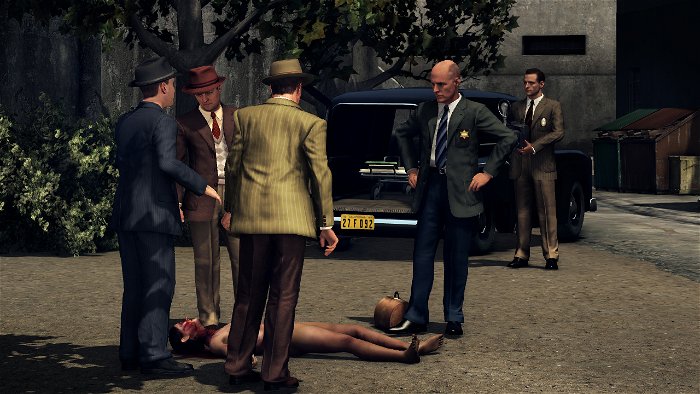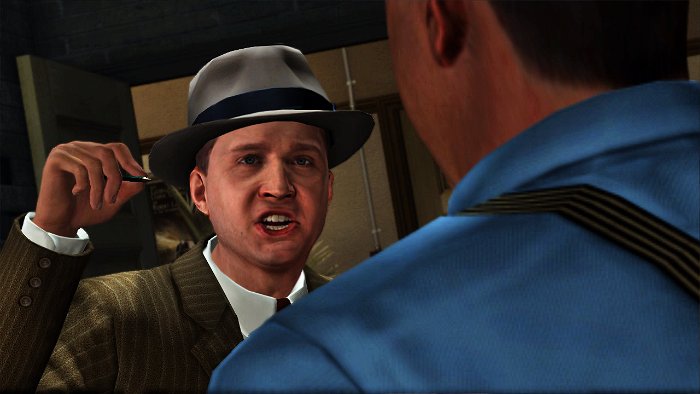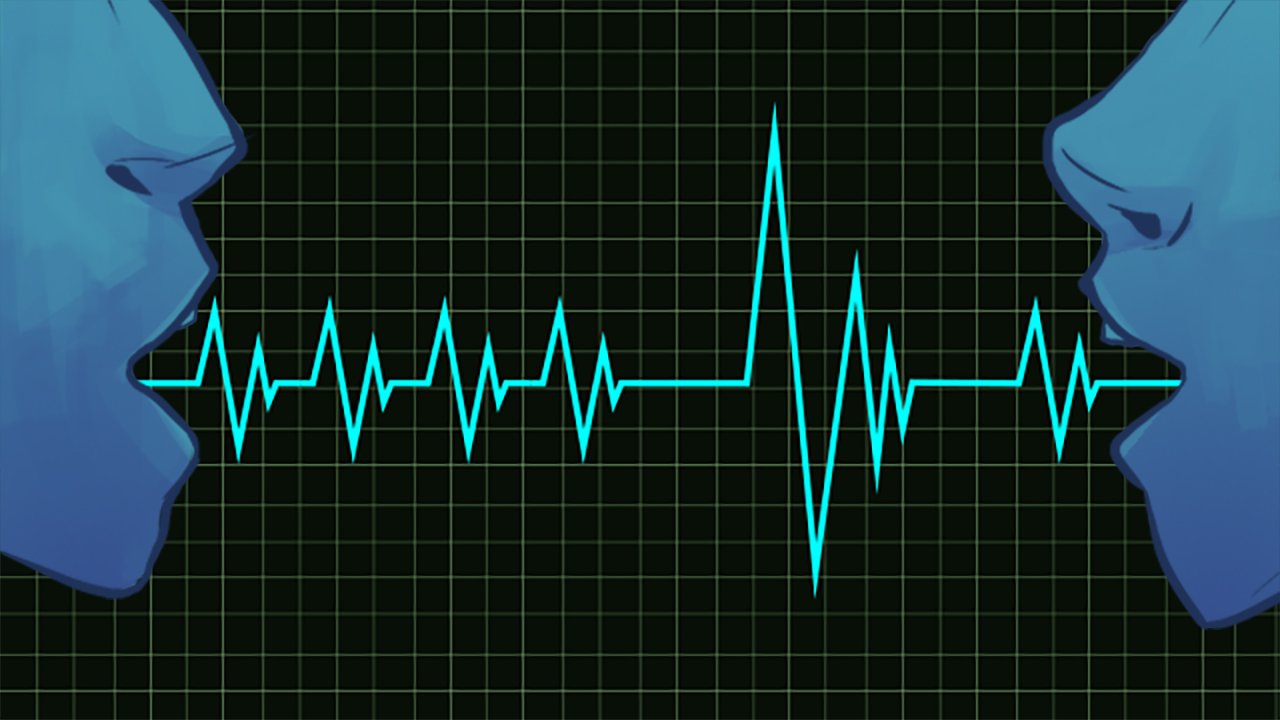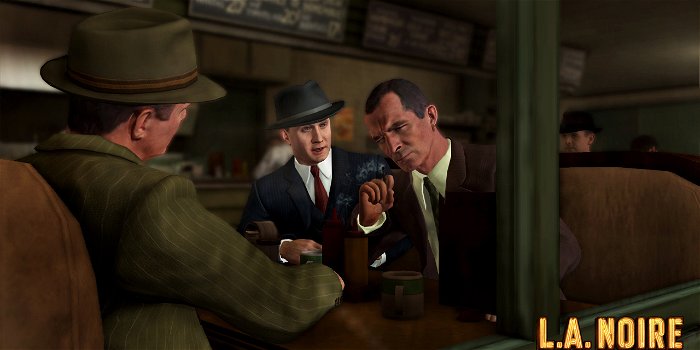While playing through L.A. Noire I found myself gradually developing an appreciation for another developer and their own technique.
It’s something that I hadn’t really given much thought to, but as I played more and more of Rockstar’s latest detective thriller, I would occasionally get pulled out of my immersion in the suspect interrogations, and thought to myself, “This wouldn’t have happened in a BioWare game.”

It’s a very subtle thing, but L.A. Noire has taught me that there is a natural flow to the way people talk. A certain emotional level is established, and, like a curve, that intensity gradually ramps up, resulting in some kind of peak, an emotional high, usually one of anger when you’re talking about accusing someone of murder. This is something that’s seen with regularity in BioWare games such as the Dragon Age and Mass Effect series, where players get taken through a range of non-linear conversations, picking each response at every turn, that can potentially develop into something explosive, such as the infamous confrontation with Wrex in the original Mass Effect. There’s a natural rise to the emotional intensity that feels authentic and believable.
It’s slightly more hit and miss with L.A. Noire where I started to suspect that perhaps the director handling the voice acting was interpreting the delivery of the actors on a line-by-line basis, rather than considering the relationship of each piece of dialog with the others the players could choose. The result was that the hero, Cole Phelps, could calmly ask a question one moment, and then explode into righteous fury the next, only to come back down to a placid, reasonable demeanor a split second later. It didn’t happen all the time, but it happened with enough regularity to both Cole and his suspects that it made many of the characters inhabiting this virtual, LA of the 40s appear to need some kind of medication for their dramatic mood swings at any given second. It broke the immersion to some degree, to ask me to believe a character could be screaming at the top of their lungs, only to drop back down to lucid calm three seconds later.

I think the chief problem here lies in a simple lack of experience. BioWare is successful at non-linear, branching dialog simply because they’ve been doing it for years and have learned, the hard way, how to hone their craft. It’s given them a deeper understanding of shaping a conversation so that no matter which result you choose, the emotional response feels logical. Many actors who have worked for BioWare, including female Shepard’s Jennifer Hale, have commented on the methodical nature of being directed for BioWare’s dialog-driven works. One insight that Hale shared about the process was the emphasis the directors would give her on maintaining certain emotional tones, ones that made it possible for the dialog to begin and end in a way consistent with other dialogue choices, so that no matter which responses players chose, “emotional continuity” was maintained. At least until a conversation came to a deliberate end with the choice of a hostile response, which gave the expected angry responses.
L.A. Noire is not quite there yet in this respect. That’s not to say that the acting is bad, since it’s certainly at least as good—if not often better—than what’s seen in BioWare’s canon. But the acting needs to be less cinematic and more interactive. It doesn’t take choice into account when it decides how it wants to “feel,” and the result is a system of dialog that can feel intense in all the wrong places on occasion.





